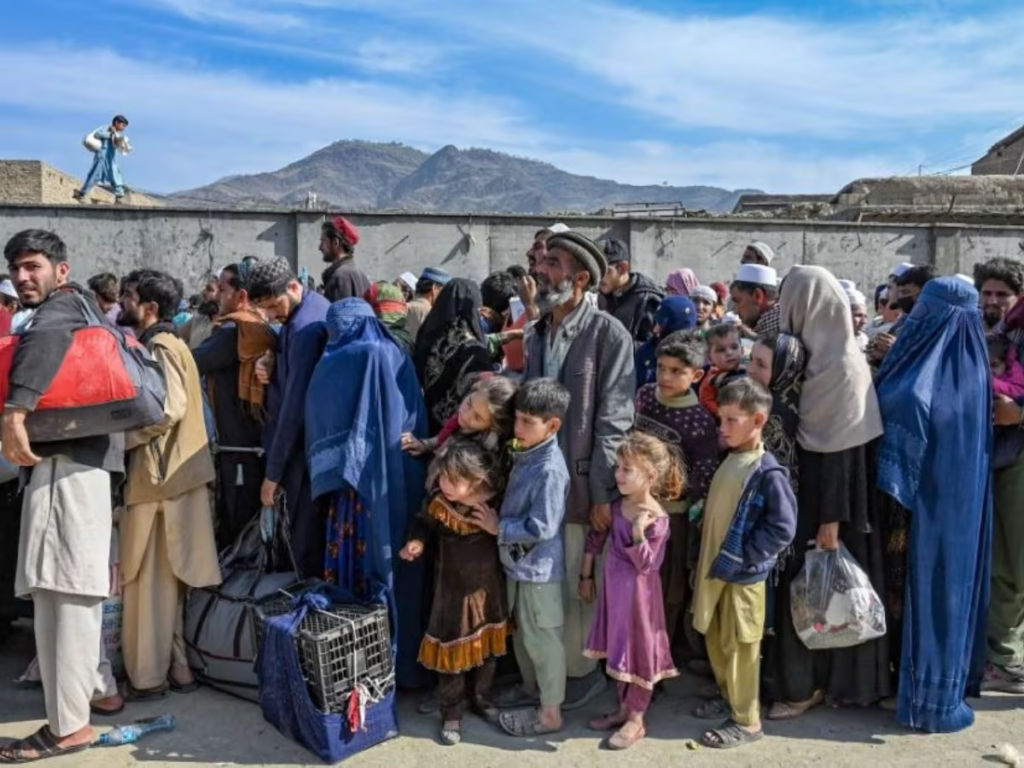Iranian authorities have detained and deported 21,407 Afghan migrants who entered the country illegally, according to Majid Shuja, the Taliban-appointed commander of the border guards in Khorasan Razavi province.
The mass deportations occurred over the past nine days and targeted migrants who had crossed into Iran without proper authorization. This follows reports of harassment and arrests of Afghan returnees in Iran.
328,000 Afghan Migrants Deported in Six Months:

In the first six months of 2023, Iran has deported more than 328,000 Afghan migrants, raising concerns about the treatment of refugees.
Even those with official residency permits have reportedly faced detention and forced deportation.
The deported migrants were handed over to the Taliban’s representative in the Dogharun district, according to reports.
Taliban’s Plea to Neighboring Countries:
The Taliban has called on neighboring countries, including Iran and Pakistan, not to deport Afghan refugees forcibly.
Taliban spokesperson Zabihullah Mujahid emphasized the need for tolerance and urged against illegal treatment of migrants.
The increase in deportations has led to anxiety among Afghan refugees, particularly as winter approaches.
Challenges Faced by Afghan Refugees in Iran:
Representatives of Afghan refugees in Iran have criticized the Iranian government and the international community for a perceived lack of support.
Challenges faced by Afghan refugees in Iran include difficulties in the employment market, housing issues, and a lack of identity documents.
The criticism underscores the broader struggles of Afghan refugees seeking refuge in neighboring countries.
Pakistan’s Forced Deportations Continue:
Simultaneously, Pakistan’s interim government has intensified forced deportations of Afghan migrants, with over 220,000 deportations since November 1.
The move adds to the challenges faced by Afghan refugees in the region.
The mass deportations raise concerns about the well-being and safety of the displaced population returning to Afghanistan.













